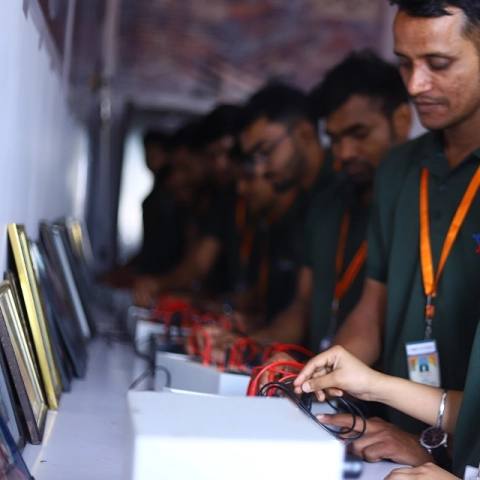The M.Sc. Physics program transcends traditional boundaries by integrating rigorous theoretical foundations with immersive, hands-on research opportunities. Core courses include Classical Mechanics, Quantum Mechanics, Electrodynamics, Statistical Mechanics, and Thermodynamics, complemented by elective offerings and research projects. Students tackle real-world challenges through interdisciplinary collaborations, industry partnerships, and advanced laboratory work. Emphasis on creativity, critical thinking, and innovation prepares graduates not only to understand the universe, but to help shape its future. Graduates are equipped for careers in academia, industry, government, research, or further study in physics-related fields.
Duration of programme
Level of Study

Advanced topics in Classical Mechanics, Quantum Mechanics, Electrodynamics, and Statistical Mechanics.
Specialized areas such as Solid-State Physics, Nuclear Physics, Material Science, and Astrophysics.
Computational Physics, Mathematical Methods, and Research Methodology for modern scientific applications.
Emerging fields including Nanoscience, Photonics, and Applied Physics techniques for practical problem-solving.
B.Sc. in relevant discipline
Minimum 60% marks